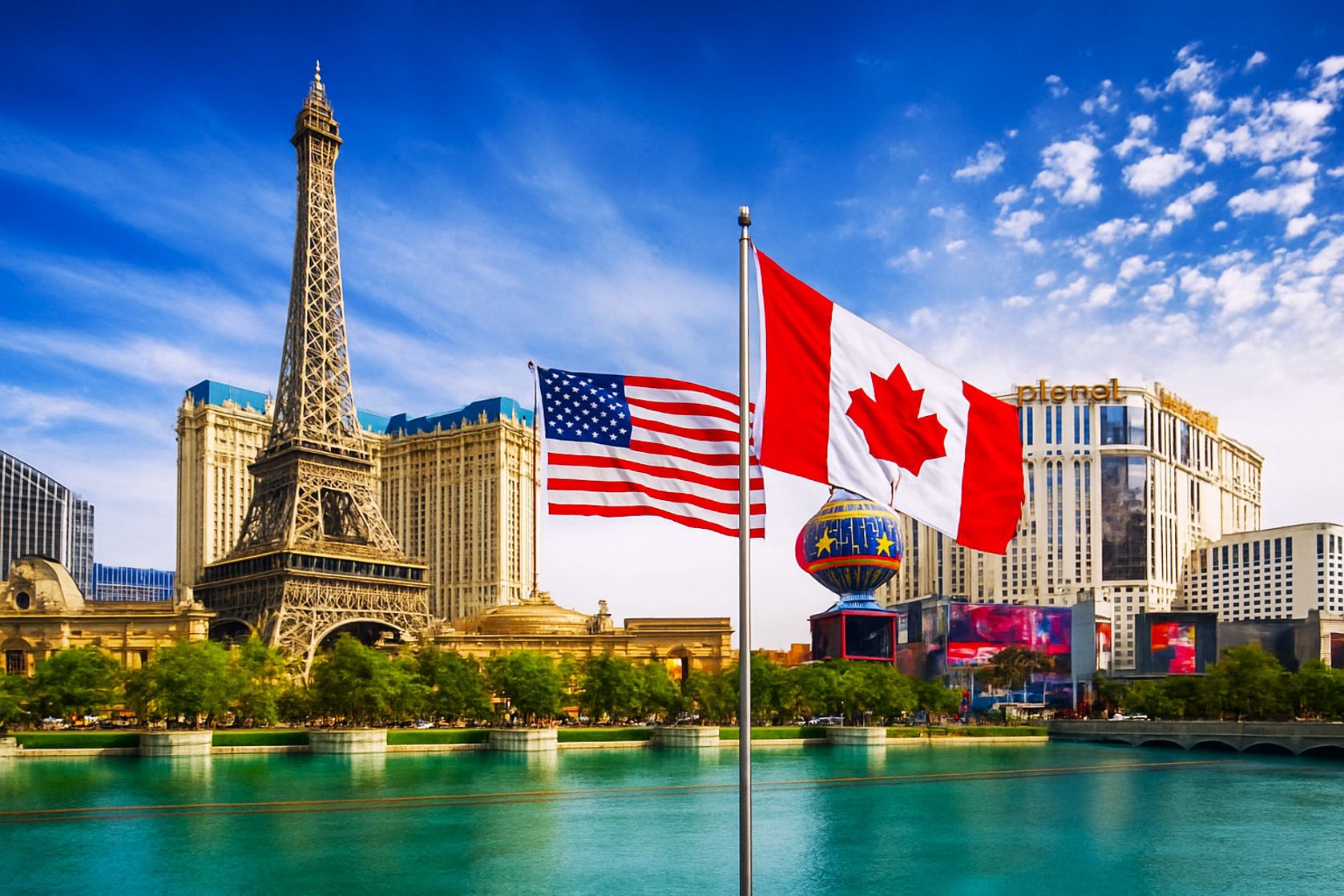Canada's U.S. Travel Boycott Threatens Las Vegas' Canadian Appeal

The Impact of Canada's Travel Boycott on Las Vegas Tourism
The United States is experiencing a notable decline in tourism, with the first half of 2025 showing a drop of 8.2% compared to previous estimates. This downturn has been particularly pronounced among Canadian travelers, who have seen a significant reduction in their visits to the U.S. According to recent data, Canadian travel to the U.S. is down by 25.2% year to date, with a 37.0% decline in land arrivals in July and a 35.6% to 43.0% drop in air bookings from Canada compared to the same period in 2024.
This decline has had a ripple effect across several American states, with some regions taking drastic measures to attract Canadian visitors back. For instance, Minnesota has actively sought to entice Canadians to return, while Montana has seemingly given up on this market altogether. However, one of the top U.S. tourist destinations—Las Vegas—has taken swift action to win back its most important international visitors.
Las Vegas: A City in Turmoil
Las Vegas is typically among the top five cities in the U.S. that generate the most revenue from tourism, and Nevada was the fourth most-visited state last year. However, this year has brought significant challenges, as the absence of Canadian tourists has placed immense pressure on the city’s economy. Canada is the largest source of international visitors to Las Vegas, with over 1.4 million Canadian travelers visiting in 2024 alone.
Nevada politicians have also recognized the gravity of the situation. In July, Senator Catherine Cortez Masto met with Canadian Prime Minister Justin Trudeau in Ottawa to address the impact of the Trump presidency on relations between the two countries. She acknowledged the tourism slump and expressed hope for a de-escalation to restore normalcy to the region.
Tourism Officials Take Action
In response to the declining numbers, Las Vegas tourism officials have taken proactive steps to re-engage Canadian travelers. The city's tourism leaders traveled to Canada to promote the destination and explore ways to break the travel boycott. This effort marks a significant shift in strategy, as officials recognize the importance of regaining Canadian visitors.
According to data from the Las Vegas Convention and Visitors Authority (LVCVA), the city received just under 3.1 million travelers in June 2025, a 11% decrease compared to June 2024. This decline is the steepest outside of the pandemic era. The LVCVA also noted that the majority of international visitors to Las Vegas come from Canada and Mexico, which together account for more than 50% of foreign tourism.
Economic Implications
The impact of Canada's boycott extends beyond just visitor numbers. The economic consequences are substantial, with Canadian spending contributing $3.6 billion to the local economy in 2024 and supporting approximately 43,000 jobs in the region. With Nevada's unemployment rate at 5.4% in July 2025, the loss of Canadian tourists could further strain the local economy.
To combat this, the LVCVA has partnered with major airlines like Air Canada and WestJet to create special travel packages for Canadian visitors. These include discounted hotel stays and food and beverage credits, aiming to make Las Vegas more appealing to Canadian travelers.
Challenges Beyond the Canadian Market
While the Canadian boycott has significantly impacted Las Vegas, it is not the only factor contributing to the city's tourism decline. Many domestic and international travelers have also voiced concerns about rising prices and excessive fees associated with hotel stays. Despite these issues, data from the LVCVA shows that average daily room rates on the Strip have remained relatively stable, with a slight increase from $203.42 in 2023 to $203.78 in July 2025.
Las Vegas Mayor Shelley Berkley has also spoken out about the need for Canadian and Mexican visitors to return, stating that traffic from these regions has "gone from a faucet to a drip." Her message underscores the urgency of restoring tourism to the city.
Looking Ahead
As Las Vegas continues to navigate these challenges, the city remains optimistic about its future. Tourism officials are exploring new partnerships and marketing strategies to attract both Canadian and international visitors. While the road to recovery may be long, the efforts being made by Las Vegas officials suggest a commitment to revitalizing the city's tourism industry.
With plans for expanded airline routes in 2026, there may be more opportunities for travelers to visit Las Vegas in the coming years. However, the question remains whether these efforts will be enough to convince Canadian and other international travelers to return to the city.
Post a Comment for "Canada's U.S. Travel Boycott Threatens Las Vegas' Canadian Appeal"
Post a Comment